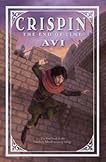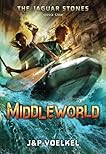When I first arrived in India I was working on a novel about a rockstar sliding into insanity. When I returned home four months later I was inexplicably carrying the fast-forming foetus of my novel: A Beginner’s Guide to Dying in India. To put it simply, India was a country that I couldn't NOT write about. Of course, the very word 'India' is really only a working title for a story which contains a multitude of races, languages, religions and cultures so varied that referring to it by simple terms such as 'nation' or 'country' is really like referring to the hundred years war as "a little scuffle between rivals."
I thought I'd describe a few of the books that led to my fascination with India, and in turn chip in my two cents (or rupees as the case may be) in the form of my first novel. Some of these books have won the Booker Prize and the like, which is nice. Mine received no such accolades, but I did have a girl send me a naked photo of herself reading it. I bet Salman Rushdie can’t claim that now can he?
Shantaram
Shantaram by Gregory David Roberts
I thought I’d mention this one first, because every time I tell someone that I’ve written a novel set in India their immediate reaction is "Oh! So it’s like Shantaram!" To which I typically respond "Yeah, it’s set in India so it’s therefore exactly the same story. Just like how Sleepless in Seattle and Terminator 2 are both set in America and therefore virtually indistinguishable." Griping aside, this is an excellent novel. And as an added bonus it’s thick enough to beat a man over the head with, should the situation ever arise.
Shiva 3000 by Jan Lars Jensen
Basically just your ordinary, run of the mill, monkey-warrior-waging-war-on-Hindu gods-that-are-actually-giant-mechanical-constructs-in-the-distant-future type story.
Midnight's Children by Salman Rushdie
This book not only won the Booker prize, but the Booker of Booker prizes, meaning that it was judged to be the best novel to win the prize in its 25 year history. Fair enough, Rushdie is a master storyteller and this is arguably the greatest of his many brilliant novels. However, a part of me wonders whether the prize shouldn’t have gone to Booker T and the MGs for their classic song 'Green Onions.' Sure, it’s not technically a novel, but the aptness of the titling just seems too good to go past.
A Suitable Boy by Vikram Seth
This is another novel that also presents itself as a viable option for use in hand-to-hand combat. Seth’s epic tale of love, marriage and family values weighs in just shy of 1,500 pages. It’s a pretty good read, but the main reason I put this book on the list is because a friend I traveled with in Bolivia met Mr. Seth on a tour and subsequently spent the next three days fielding hilariously extravagant sexual advances from the much older literary genius. You’ve got to admire an author who not only has the courage to pen an epic masterpiece, but also hit on a very clearly heterosexual man over thirty years his junior in the middle of the Bolivian salt flats.
Life of Pi by Yann Martel
I bought this book after misreading the title as Life of Pie. After spending the first 200 pages becoming increasingly frustrated with the complete absence of any kind of baked product, it gradually dawned on me that this was nevertheless a brilliant piece of fiction.Holy Cow: An Indian Adventure by Sarah Macdonald
Like my own novel, this is the story of an Australian who unexpectedly finds themselves in India and has a series of strange and marvelous adventures. Unlike my novel, this is a true story that sold bazillions of copies. Once, at a book signing at an abandoned lunatic asylum in Sydney, I had a woman pick up my novel and say "I loved your reading! Your book sounds AMAZING! Is it a true story?" And I replied, "Well, it was influenced by my time in India and some of the characters are based on real people but no, its essentially fiction." To which she answered, "Oh. I thought it was a true story." And put the book down and walked away.
The Bhagavad Gita translated by Eknath Easwaran
I know what you’re thinking: "Hey! This is the novel that those bloody shaved-headed Hare Krishna's shove in my face when I’m just minding my own business and trying not to have my materialistic self-serving values called into question, the jerks!" And you’d be right.
Often when they try and offer it me I respond "Oh, I’ve already read that." To which they reply "But this a NEW edition!" Really? So suddenly a text that has been around for over two thousand years has a NEW edition?! Give me ten copies!
They are right about one thing though; you should read this. In a nutshell, it’s allegorical tale of war which sums up the Hindu philosophy and world view in the form of an epic poem. Basically one of the cornerstones of all Hindu teaching.
A Fine Balance by Rohinton Mistry
When I was working at a volunteer operation in India I met a lovely librarian (doesn’t that just roll off the tongue?) named Heather who told me of all the thousands of books she’d ever read, this was her favorite. I can see why. Not only is this compelling writing with a strong narrative, it also sums up life in Mumbai in the 1970s more succinctly than any history book you could ever hope to read.
Siddhartha by Hermann Hesse, Ralph Freedman, Joachim Neugroschel
Often listed on those "100 books you must read before you die" type lists, this is a classic philosophical/allegorical tale that explores Indian culture and Buddhist philosophy. Also it’s not very long, so if you ARE about to die and are trying to get through 100 books before that happens, you should probably put this one on your reading pile.
Gitanjali: A Collection of Indian Poems by the Nobel Laureate by Rabindranath Tagore, William Butler Yeats
They don’t hand out Nobel prizes to just any old chump, and indeed "chump" is a term that, until about thirteen words ago, had never once appeared in close proximity to the name of the revered Mr. Tagore. The Calcuttan poet’s influence on Indian culture is immeasurable, and this is well known as his masterpiece.































No comments:
Post a Comment